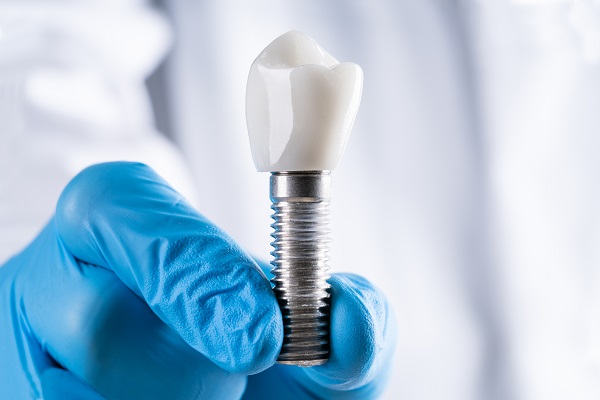 Unlike general dentistry, which focuses on routine examinations and treatment, restorative dentistry is a specialization focusing on the repair or replacement of damaged or missing teeth. Bruxism is a fairly common condition that causes the clenching and grinding of teeth. While no single cause exists for bruxism, the results of teeth grinding are well documented. Teeth are worn down and damaged from continuous wear, and many patients require restorative treatments to correct bite deficiencies.
Unlike general dentistry, which focuses on routine examinations and treatment, restorative dentistry is a specialization focusing on the repair or replacement of damaged or missing teeth. Bruxism is a fairly common condition that causes the clenching and grinding of teeth. While no single cause exists for bruxism, the results of teeth grinding are well documented. Teeth are worn down and damaged from continuous wear, and many patients require restorative treatments to correct bite deficiencies.
4 procedures to treat bruxism effects
While restorative dentistry can remedy many effects of bruxism, rushing into treatment may be a mistake. Without understanding the condition or curbing the habitual behavior, a patient may damage any corrective work. If restorations are undertaken but the patient continues to grind excessively, it may require further remedial dental treatments, causing further stress. However, that does not mean patients must simply endure their smile being worn down. There are four procedures to deal with bruxism damage, including handling the behavior itself.
1. Mouthguards
Before seeking any surgical treatment, a patient should mitigate further tooth loss and prevent damage to any repairs made. Mouthguards or mouth splints are the two methods most often used to curb the grinding of teeth. Primarily used for patients with sleep bruxism, the device is a plastic sheath that creates a protective barrier over the teeth, eliminating direct tooth-on-tooth grinding. Mouth splints are smaller than mouthguards and thicker, increasing the longevity of the product and its usefulness.
2. Crowns
Dental crowns are caps that cover a damaged tooth to protect it against further wear. Bruxism patients often wear down the enamel (the hard outer layer of a tooth) causing cracks or breaks in the surface. A crown keeps the remaining enamel from wearing away, reducing the risk of further tooth decay or the potential loss or removal of the damaged tooth or teeth.
3. Veneers
Unlike crowns, which fit over the teeth, veneers only attach to the front of the teeth. However, these thin porcelain sheets still restore and protect the integrity of a damaged smile. Veneers can be a less invasive procedure than crowns, but patients should consider the durability of the application. Veneers chip and wear out more quickly than a crown, and for bruxism patients, that is a significant concern.
4. Bonding
Many patients who suffer from teeth grinding may prefer dental bonding because it is a cost-effective and straightforward procedure. Dentists use an inexpensive composite resin adhered to the damaged teeth. The resin is then shaped and polished to match the surrounding teeth, allowing patients to have the appearance of a natural smile.
Check out what others are saying about our dental services on Yelp: Restorative Dentistry in Syosset, NY.
Conclusion
For bruxism patients, restorative dentistry can restore sheen and brilliance to a damaged smile. However, it is crucial to curb the habitual behavior of teeth grinding before investing in dental restoration. Failure to first control the behavior can lead to repetitive and costly repairs. A dentist can help create a treatment plan to remedy teeth grinding and the resulting damage.
Request an appointment or call North Shore Laser Dentistry at 516-364-8899 for an appointment in our Syosset office.
Recent Posts
Preventive dentistry focuses on the prevention and early detection of oral health concerns to help ensure they do not develop or progress to a more severe stage that is harder to treat. One of the primary goals of preventive dentistry is to help patients care for their teeth between check-up visits, which should include proper…
Dental implants are artificial teeth roots that can be used to replace missing teeth. A tooth can be knocked out by trauma to the face, or it might fall out due to bone loss caused by periodontal disease or severe tooth decay.Most people will lose at least one of their teeth at some point in their…
A laser dentist is a great resource to utilize when looking for an alternative way to have dental procedures performed. Laser dentists offer procedures that are less invasive, less painful and less grueling for the mouth. They do this by using laser light beams to perform necessary treatments on the oral cavity. Ultimately, dental laser…


